A guest post by Ian Garrett.
Having become an amateur mbira enthusiast over the past few years, I noticed that mbila deza, South Africa’s only surviving indigenous mbira (played by Venda and Lemba people) seems to be little known outside the Vhembe region of Limpopo province. In 2023, I assisted Stefan Franke to create a section for the instrument on sympathetic-resonances.org, and at the same time began making enquiries about the tradition’s ongoing status.
I was delighted to learn that a documentary had been made recently about acclaimed player Vho-J.K. Mathoho, but concerned that after lengthy enquiries I was able to find a contact number for only one instrument maker: 82 year-old Mbangiseni Philemon Nemukula also known as Vho-Mbangiseni Netshamutshedzi.
Kuda Samora Nyaruwabvu kindly put me in touch with a friend of his in Vhembe whom I commissioned to drive out to Netshamutshedzi’s home, buy two instruments for me and courier them down to my home in the Western Cape.
The instruments were of impressive quality, finely crafted with carefully tuned overtones and a beautifully resonant sound quality. Clearly the work of a master. The tuning and key layout however differed from a variety of other mbila deza in the Tracey Collections at ILAM that I had examined. I realised that I needed to hear and see these instruments being played in order to fully understand them.
Not having been to Vhembe myself for at least 20 years I was reluctant to make the long journey my own, but an opportunity presented itself when friends invited me to join them for a holiday in the Kruger National Park over the Easter weekend. They were already keen to visit traditional potters in Vhembe, and happy to add an extra morning to the itinerary in order to visit Netshamutshedzi.
An added bonus was that professional jazz musician Dave Reynolds offered to bring a good quality portable recorder and Samora, who lived in Vhembe for a few years and is able to speak Tshivenda, kindly agreed to join us for the visit and interview Netshamutshedzi (who speaks little English).
A visit was arranged for the morning of the 25th March 2024.
Unfortunately, for a variety of reasons including exceptionally busy Easter traffic, we ended up with a lot less time than we had hoped for, but despite the slow drive, Netshamutshedzi’s house was fairly easy to find. Tshidzini isn’t large and people on the side of the road directed us to his home. The roads were unpaved but manageable without a 4×4.
In my excitement, I forgot to take a location pin, but the house is located approximately here,
not far from Tshamutshedzi Primary School.
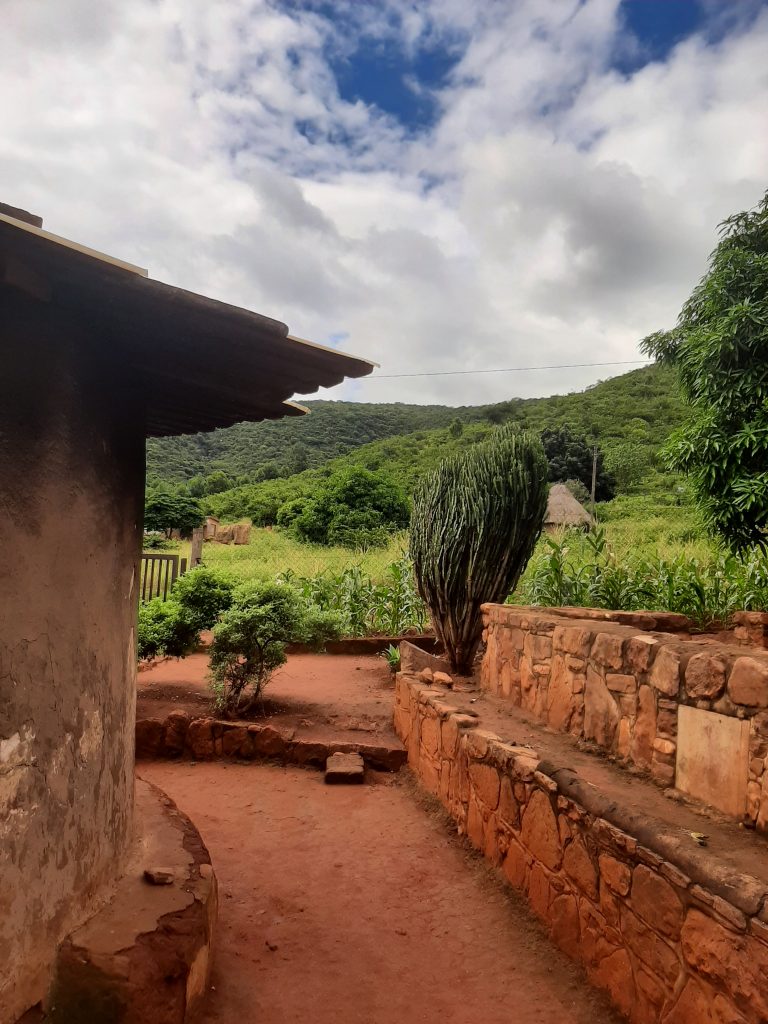
Stefan kindly supplied a worksheet of questions and we were able to interview Netshamutshedzi for about an hour. I didn’t want to slow the process by asking for English translation along the way, so the entire interview was conducted in Tshivenda.
Netshamutshedzi stopped periodically to play songs, which Dave Reynolds recorded with a registration clap so that he could sync in the sound tracks, and we used two cell phones to take video footage, one focused on Netshamutshedzi’s fingers and the other panning around to show the performance more generally.
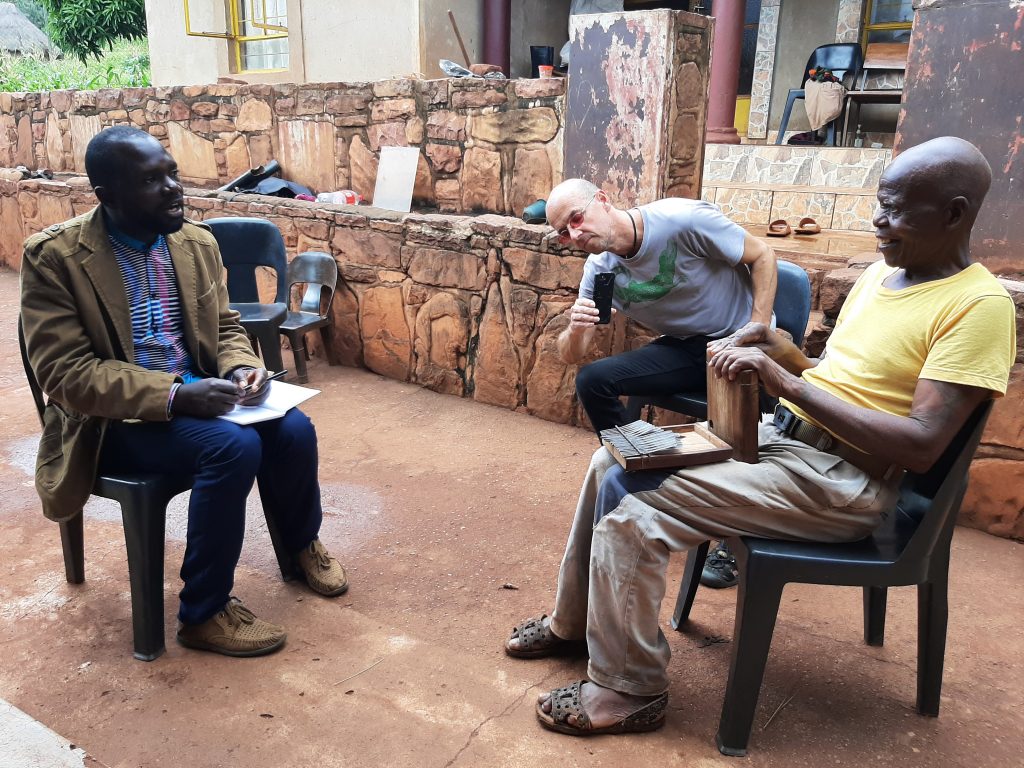
Netshamutshedzi was charming to meet. Friendly and an entertaining performer, he was forthcoming in reply to our questions and happy to give us permission to share his music. It was an honour and pleasure to meet him, but I was very sad to hear that nobody in his community has ever expressed any interest in learning his music. It is also a great pity that he appears to be almost unknown in international mbira-playing circles. Having heard about only one young mbila deza player in Vhembe at the moment, this venerable tradition appears to be highly endangered.
A complete surprise though was to learn that Netshamutshedzi’s music has in fact been recorded on CD, by French ethnomusicologist Aude Julien Da Cruz Lima from the University of Paris Nanterre. She presented him with 11 copies of the CD she made, only one of which is still in his possession.
She and perhaps other academics appear to have spread limited awareness of his work, because he said that he has sold many instruments to White people. I have tried googling the name of the CD (“Vhutsila ha Mbangiseni Netshamutshedzi”) and unfortunately it has no digital presence on the Internet. Luckily Netshamutshedzi’s was able to give us digital copies of 8 of the 11 tracks that appear on the CD.
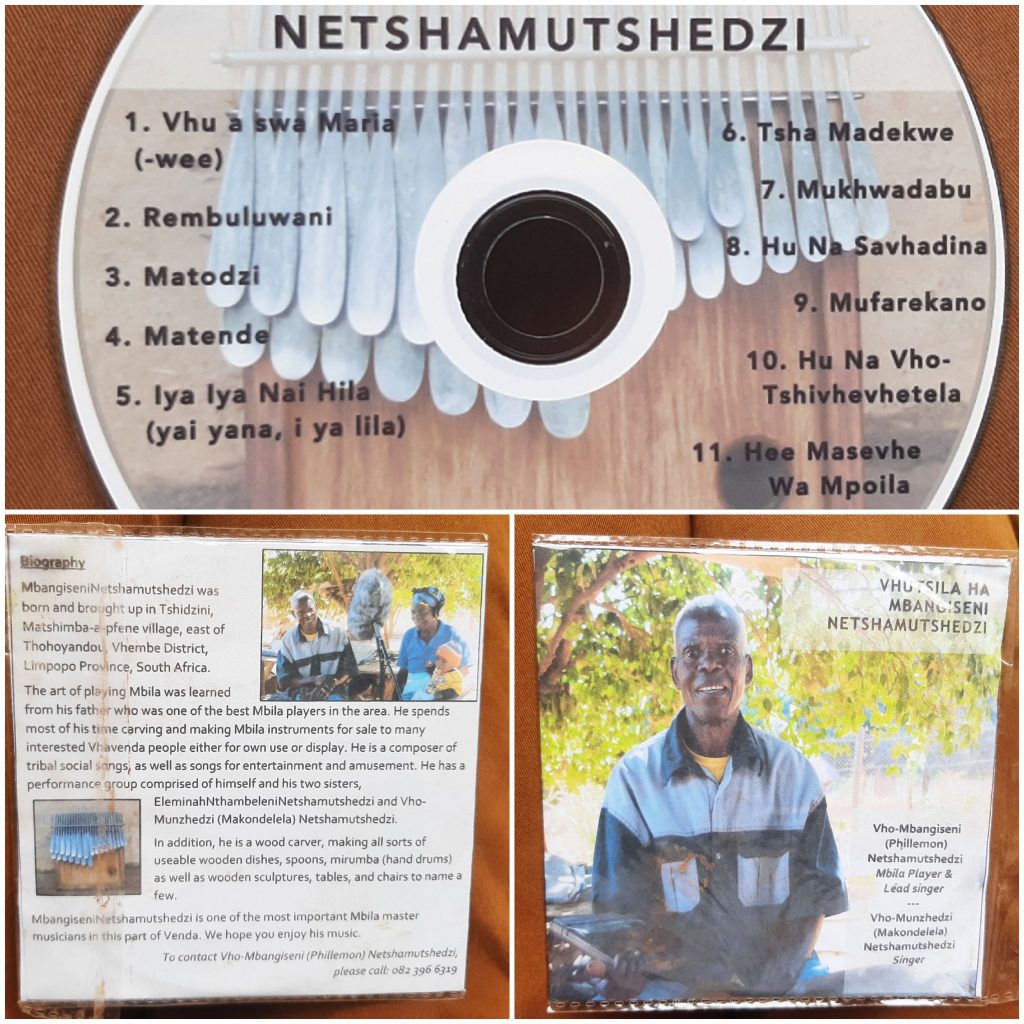
As an outcome of the visit, I hope to utilise the material that we collected in the following ways:
- To edit a few short video clips that can be posted on social media to promote awareness of Netshamutshedzi’s music and possibly prompt some instrument sales. Anybody who wishes to purchase an instrument from him can contact him at +27 82 396 6319, or his wife Vho-Florah at +27 82 798 3444 (Florah is able to speak some English).
- The full interview can be made available to anyone who might be able to use it for research. Please contact me to discuss.
- I would like to find an appropriate digital platform where Netshamutshedzi’s CD can be shared.
- Over the next few months I will attempt to transcribe the five pieces that Netshamutshedzi played for us and publish them on sympathetic-resonances.org so that anyone who purchases one of his instruments can access some of the repertoire that suits his unique tuning.
In reflection following the visit, Samora expressed a wish to see mbila deza become “re-connected” with related mbira traditions in Zimbabwe. I.e. for Venda and Shona mbira players to become accquianted with one another and learn about each other’s traditions. I can only hope that opportunities might arise through such contact to encourage the continued survival of mbila deza and its unique and beautiful playing style.
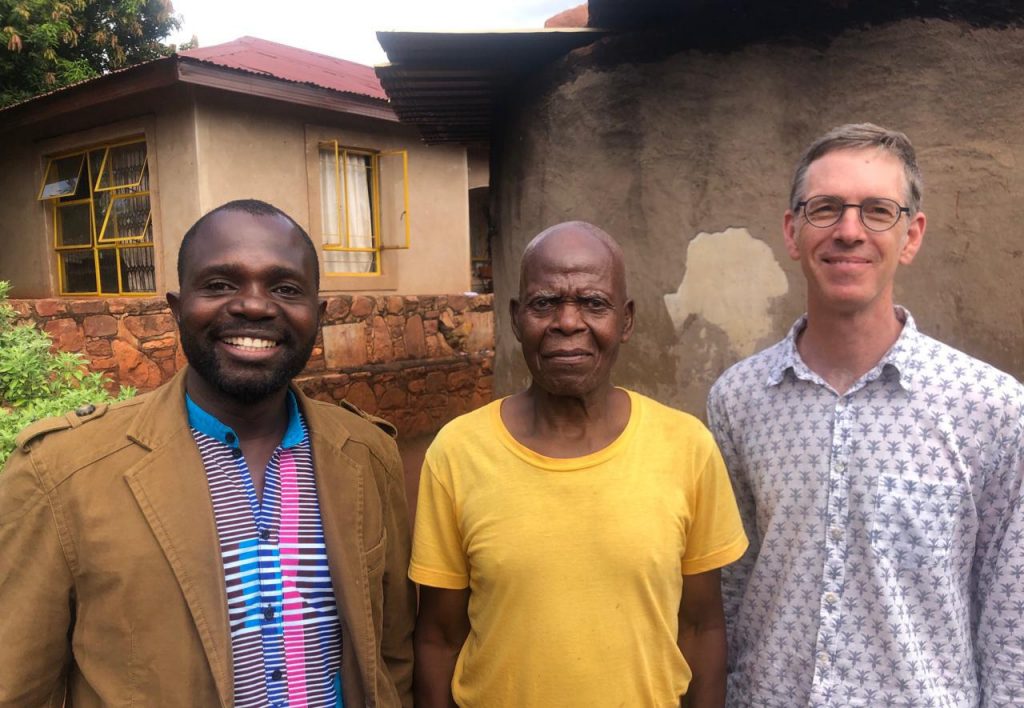
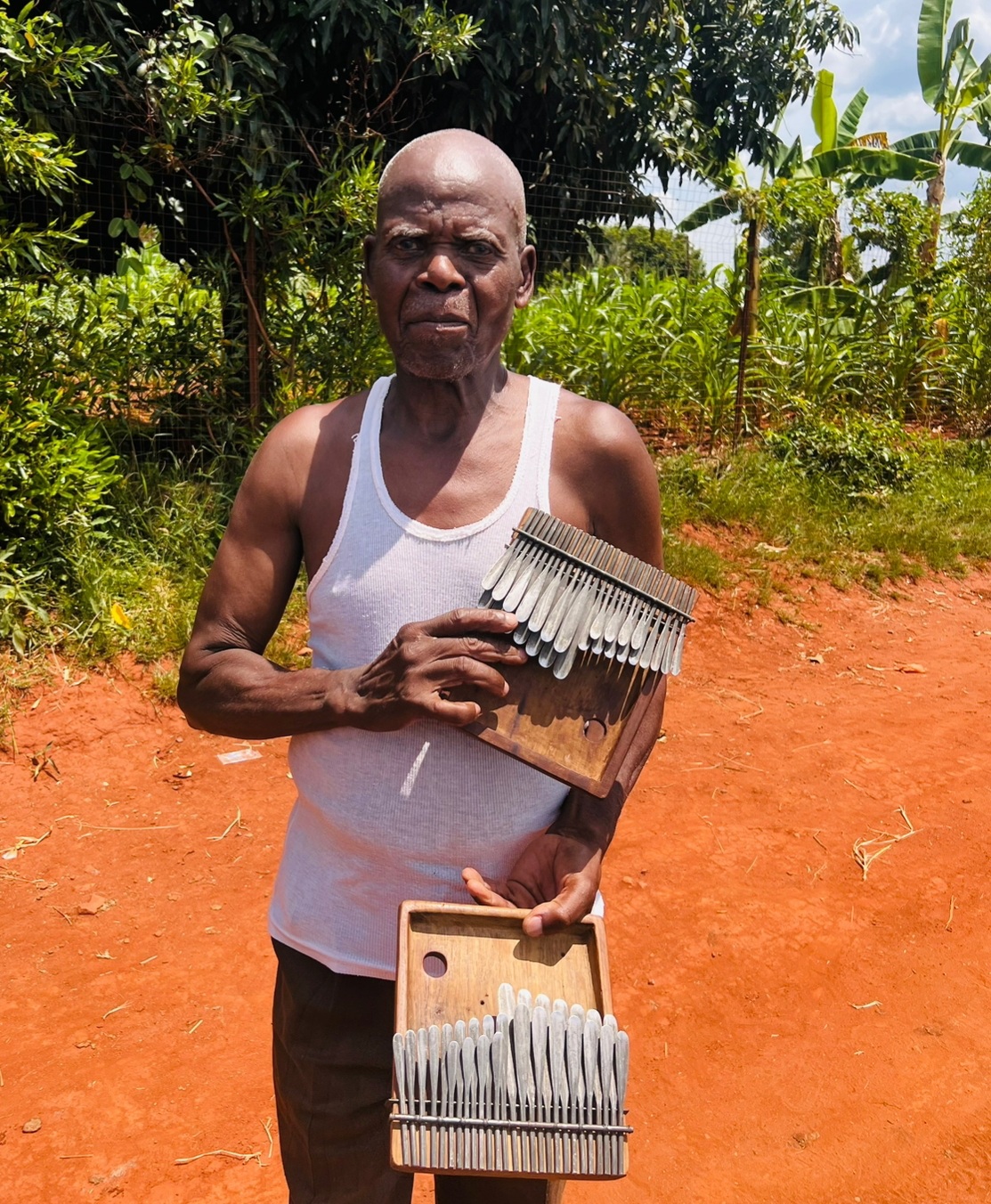
Leave a Reply